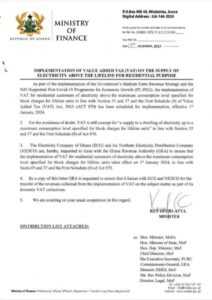The country is currently witnessing high taxes due to fiscal indiscipline on the part of managers of the economy, an economist Dr John Kwakye has said.
Dr Kwaye wondered why a government that came into being on the back of promises to shift the economy from taxation to production would introduce more taxes as a way of generating revenue.
“The economy is being strangulated by high taxes and interest rates, both the result of fiscal indiscipline,” the Director of Research at the Institute of Economic Affairs (IEA) wrote on his X platform.
He added “Can we count how many taxes this government has introduced? Is that how you change policy “from taxation to production”?. No wonder real GDP growth is estimated to be just 2.3% in 2023 and projected to be 2.8% in 2024.”
Next govt must do a lot of hard work to rationalize the taxation system – IMANI President
Regarding this same issue, the Founding President of IMANI Africa, Franklin Cudjoe, has said the next administration after the 2024 general elections must do a lot of hard work to rationalize the taxation system in Ghana and decide whether or not they want to continue to grow the economy through levies.
This means that the next administration will have to relax some of the taxes that have already been introduced by the current government or rationalize them to ensure that the productive elements of the economy are protected and encouraged to grow, Mr Cudjoe added.
This was after he observed that almost everything in Ghana has been taxed by the current administration leaving very little room for the next administration to levy the people.
Mr Cudjoe intimated that the government has been trying to resuscitate the economy through taxation hence the numerous taxes that have been introduced including the Value Added Tax (VAT) on electricity consumption.
The Ministry of Finance announced that the implementation of the 15% VAT for residential customers of electricity above the maximum consumption level specified for block charges for lifeline units in line with Section 35 and 37 and the First Schedule (9) of Value Added Tax (VAT) Act, 2013 (ACT 870) has commenced.
It started effective 1″ January 2024.
This formed part of the implementation of the Government’s Medium-Term Revenue Strategy and the International Monetary Fund (IMF) Supported Post Covid-19 Programme for Economic Growth (PC-PEG), the Ministry said.
For the avoidance of doubt, a statement issued by the Ministry said, VAT is still exempt for “a supply to a dwelling of electricity up to a maximum consumption level specified for block charges for lifeline units” in line with Section 35 and 37 and the First Schedule (9) of Act 870.
“The Electricity Company of Ghana (ECG) and the Northern Electricity Distribution Company (NEDCO) are, hereby, requested to liaise with the Ghana Revenue Authority (GRA) to ensure that the implementation of VAT for residential customers of electricity above the maximum consumption level specified for block charges for lifeline units takes effect on 1 January 2024, in line with Sectio35 and 37 and the First Schedule (9) of Act 870,” it said.
“ By a copy of this letter GRA is requested to ensure that it liaises with ECG and NEDCO for the transfer of the revenues collected from the implementation of VAT on the subject matter as part of its domestic VAT collections,” it added.
Speaking in an interview on the Ghana Tonight show on TV3, Mr Cudjoe said “I have lost count of the number of taxes we have, don’t forget we have run the economy into the ground and we have been trying to salvage it through taxation.
“I thought that the next administration may not even have the opportunity to tax anything at all because this administration has taxed us almost to a halt. It is in that spirit that I said the next administration must be pitying.
“Clearly speaking, if the next administration has plans to develop this country through taxation I am sure people will start asking questions as to whether we haven’t really reached the zenith of taxation in this country.
“This means the next administration must do a lot of hard work, rationalize the taxation system we have right now, and decide whether they want to continue to grow the economy through enterprise support, which will mean that they will have to relax some of the taxes that we already have or they may have to rationalize the taxes that we have right now in order to ensure that the productive elements of the economy are protected and encourage to grow.
“Otherwise, as we all know we are in a bind right now and the economy is not going to get better until 2028, that is the forecast we know.”
The post Fiscal indiscipline is causing high taxes in Ghana – Economist first appeared on 3News – First In News | Ghana News Updates.

















